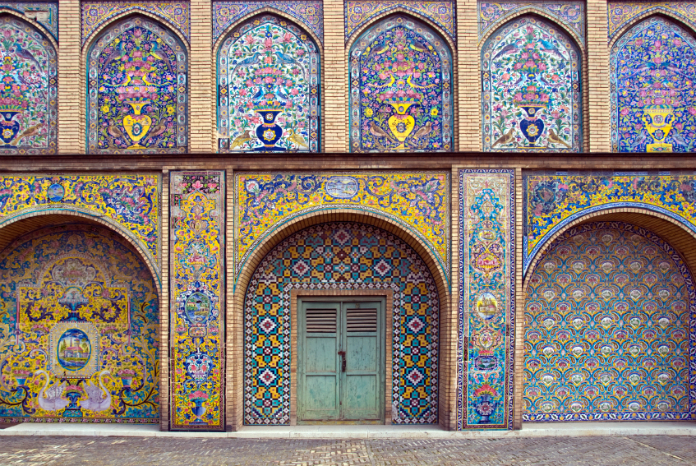Iran still a yacht market of the future

A lot of industries are getting excited about Iran. After 36 years of sanctions, the country may be about to be opened up and there will be lots of opportunities. Iran is the second largest economy in the Middle East – after Saudi Arabia. It ranks fourth in the world for discovered oil reserves and second for natural gas. The World Bank ranks it as the 18th largest economy in the world (by PPP).
It should also become an important yachting market. It has a strong maritime culture and Wealth X estimates that there are 645 UHNW individuals with assets of more than $30 million in Iran.
“There is certainly potential for the country to become a new source of superyacht buyers in future”
But the yachting industry will need to wait. Not all sanctions are being removed at the same time and many important ones will stay in force that will prevent the sale of superyachts.
In July, Iran, the USA, the UK, France, Russia, China and Germany agreed on the Joint Comprehensive Plan of Action (JCPoA). Although the intention is to eventually lift all sanctions in return for Iran agreeing not to build nuclear weapons, it is a phased process. Sanctions will start being lifted when all sides have implemented the rules – on what is known as Implementation Day (which should be in 2015). And any lifted sanctions that have been removed can also be returned quickly if there is any evidence of nuclear weapons building – this is called snap back in the agreement.
“With the prospect of sanctions in relation to Iran being gradually relaxed, there is certainly potential for the country to become a new source of superyacht buyers in future,” says John Leonida, partner at Clyde & Co in London. “Any such transactions are highly likely at present to be restricted by sanctions, given the extensive list of items for marine and navigational uses whose export from countries imposing trade sanctions is banned.”
The EU introduced regulations covering marine equipment exports specifically in December 2012.
“The EU’s Iran sanctions presently ban the sale, supply, transfer or export of certain key naval equipment or technology (directly or indirectly) to any Iranian person, entity or body, or for use in Iran,” says Rupert Gordon, an associate at Clyde & Co in London, who specialises in sanctions. “This includes such essential items as ships’ or boats’ propellers and blades, and marine propulsion engines and outboard motors. It would be difficult to argue that yacht or any of her parts would not end up in Iran even if the purchase and her ordinary berthage was outside Iran.”
“It would be difficult to argue that yacht or any of her parts would not end up in Iran even if the purchase and her ordinary berthage was outside Iran.”
Suppliers of other yachting equipment – such as a GPS navigation systems – will also need to be careful.
“Further, the EU categorises as ‘dual-use items’ technologies which may be used for both civil and for military purposes and which may feature among the equipment installed on superyachts,” says Gordon. “Even if an Iranian could buy a yacht, maintaining a yacht could be severely hindered not only by the funds transfer issues but also with respect to the sourcing of spare parts and upgrades.”
Although the countries that have signed the JCPoA are keen to trade with Iran they will all enforce the remaining sanctions strictly.
“In view of the restrictions that are in place at present, detailed analysis will be necessary following any partial relaxation of sanctions to establish whether a superyacht transaction with an Iranian buyer remains affected by the measures that remain in place at such time, and it may well be the case that it is necessary to seek authorisation from relevant sanctions authorities in respect of any transaction,” says Leonida. “This would still be the case even if an Iranian national sat behind an offshore ownership structure.”
As well as becoming a tourist destination in its own right, the ultra-high not worth individuals identified by Wealth-X could eventually become important charterers of yachts. But again this will take time.
“Provision of insurance for the benefit of Iranian persons is also prohibited under the EU’s Iran sanctions. There are similarly restrictions on transfers of funds between Iran and the EU and banks are presently reluctant to undertake transfers even where lawful,” says Gordon. “There will also be risks involved with chartering to Iranian nationals.”
| Iran | Russia | Saudi Arabia | Turkey | UAE | |
|---|---|---|---|---|---|
| 2014 Population (million) | 80.8 | 143.8 | 29.37 | 75.84 | 9.446 |
| 2014 UHNWIs | 645 | 1,230 | 1,495 | 915 | 1,275 |
| 2014 GDP Source: World Bank | $406.3 billion | $1.86 trillion | $746.2 billion | $799.5 billion | $401.6 billion |
| 2015 GDP Forecast | 0.6% | -2.7% | 4.6% | 3% | - |
| Landmass (sq km) | 1,531,595 | 16,377,742 | 2,149,690 | 769,632 | 83,600 |
Sources:
Joint Comprehensive Plan of Action or JCPoA – 14 July 2015
EU regulations 1263/2012 and 1264/2012 22 December 2012 (in force on 23 December 2012)
Iran the next big jet market – Corporate Jet Investor
Contacts
Subscribe to our free newsletter
For more opinions from Superyacht Investor, subscribe to our email newsletter.

